Lecturer & Teacher
Dr Paul Max Edlin is an experienced lecturer who makes even the most complex musical issues seem easy to understand. Lectures normally last between 45 minutes to an hour, but can be tailored to last longer if required. He is happy to give lectures on a variety of topics and is happy to discuss specifics with interested parties. In 2013 he was appointed Director of Music at Queen Mary, University of London and was also appointed as a guest lecturer for Martin Randall Tours, the world’s leading cultural tour operators.
Paul Max Edlin can adapt lectures to fit any situation and any length from 45 minutes to 90 minutes. He is an experienced public speaker and is well used to introducing music at concerts and giving introductory talks. Please contact for fees.
Sample Lectures
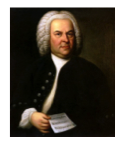
J.S. Bach and the sign of the cross
Johann Sebastian Bach emerged from a dynasty of musicians and is widely acknowledged as the most influential of all composers. His work is steeped in and informed by his devout faith. A Lutheran who held his Maker as the source of all artistic achievement, his music reveals innumerable symbolic references to Christianity. This lecture reveals many of these symbols, be they actual shapes of the cross, or structural plans for texts that touch us deeply yet subconsciously.
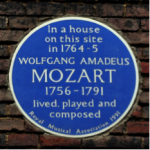
The Mozarts in London
250 years ago, between 1764 and 1756, Leopold Mozart brought his eight-year-old Wolfgang and his sister Nannerl to London. They gave concerts and entertainments to wealthy benefactors throughout their stay. It was also at this time that young Wolfgang made friends with J.S. Bach’s own son, Johann Christian. This lecture looks at the relationship of the Mozarts, their impact on London, yet it also discusses the fickleness of the time that led them to leave London and England to seek new pastures in which the Mozart brand could be sold to new and eager audiences.

S is for Signs, Secrets and Symbols
Composers tell us so many things in their music. They tell us secrets about themselves, their love lives, their passions, their fears, their seeming crimes, their deepest beliefs, and so much more. This lecture explores a range of ways in which composers use music as a means to express themselves. This lecture is sure to provoke your thoughts and you may never be able to hear certain pieces in the same way again. Composers discussed are J.S. Bach, W.A. Mozart, Bruckner, Tchaikovsky, Shostakovich, Berg and Messiaen.
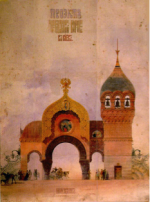
Mussorgsky’s many Pictures at an Exhibition
How many versions of Mussorgsky’s iconic ‘Pictures at an Exhibition’ exist? Why has it fascinated conductors and orchestrators so much? Why do they continue to want to make new versions of this well-known music? There is much more to Mussorgsky’s ‘pictorial’ work than we may at first realise and, for many reasons, its content cannot but inspire new versions. This lecture looks at Mussorgsky the man, explains his friendship with the artist Viktor Hartmann, examines the music itself and compares many versions of this great work so that one can delve into it in new ways.
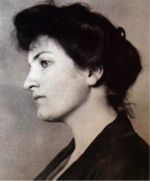
Gustav Mahler and his narcissistic wife Alma
Alma Maria Schindler was considered a beautiful woman, something of a prize, but at what cost? She had innumerable lovers and even more admirers, yet she is most famous for her marriage to the composer and conductor Gustav Mahler. There is no doubt that Alma affected Gustav hugely and his musical works are driven by his passion as well as a fear of his wife. This lecture explores the world of the Mahlers, it examines Alma’s many relationships and the impact her narcissistic and frequently cruel behaviour had on her husband, who died far too young. It illustrates this with a close scrutiny of Mahler’s music and how it responds to the pain and anguish as well as the undoubted love he had for her.
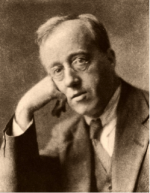
Holst and The Planets
Gustav Holst’s ‘The Planets’ was a ground-breaking work. Yet who was Gustav Holst? A mild mannered Englishman, born in Cheltenham, passionate about music education and a teacher first and foremost, a man with a passion for the mystic east and a man who suffered from poor health all his life. The Planets is the single work we remember him for, but he began to hate it, and for that very reason. This lecture gives an insight to Holst and his work, puts The Planets into context and discusses its creation, and explores other works, giving us a fuller picture of this important British composer.
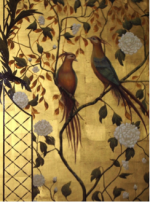
East meets West meets East
When French composer Claude Debussy first heard the Javanese Gamelan at the 1889 Paris Universal Exposition, a new and exciting cross-fertilisation of music began. The music of the East truly began to impact on Western music. After Debussy came other French composers, many similarly intoxicated by the musical perfumes of the East, their works revealing inspirations from India, Indonesia, China and Japan. It was in many of these French composers that a new generation of Eastern composers found inspiration. This lecture explores these mysterious musics and reveals new found parallels, which continue to inspire and influence. It also introduces listeners to some of the most beguiling and exquisite music of the Twentieth Century.
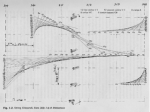
The Shock of the New?
People often fear new music, or what they see as ‘new music’. It is certain that music has changed dramatically over the past hundred years and it has often been hard to grasp. This lecture attempts to redress the balance and offers insight into what at first may seem complicated and dissonant music, making it understandable and accessible. You may suddenly find yourself fast becoming a ‘new music’ fan and eager to explore more and more work of our time and of our recent past.
Paul Max Edlin has almost thirty years experience in teaching composition, conducting and the trumpet. He has taught these subjects up to PhD/Diploma standard. In addition, he teaches Orchestration, Arranging and Written Musicianship.
Please contact for current rates